Towards the end 2021 we worked in partnership with ABTA to deliver a full day virtual event covering many different elements of digital marketing.
We have already covered 'consumer habits & online behaviour', and 'the fundamentals of organic & paid search' in previous articles. Next, our CEO Andy shared his experience in optimising your website, and what to do to achieve better SEO results.
The Google Trends destination insights for 2021 have highlighted a clear pent up demand for the industry with a huge increase of +270% in travel-related searches. Global destination searches including ‘where to travel’ and ‘can I travel’ are nearly at all time highs.
In order to capitalise on current trends, it’s essential to review your site to ensure that you’re achieving the best SEO results possible.
Only 0.78% of all Google users click on a website located on the second page, so in short, it’s all about page one rankings:
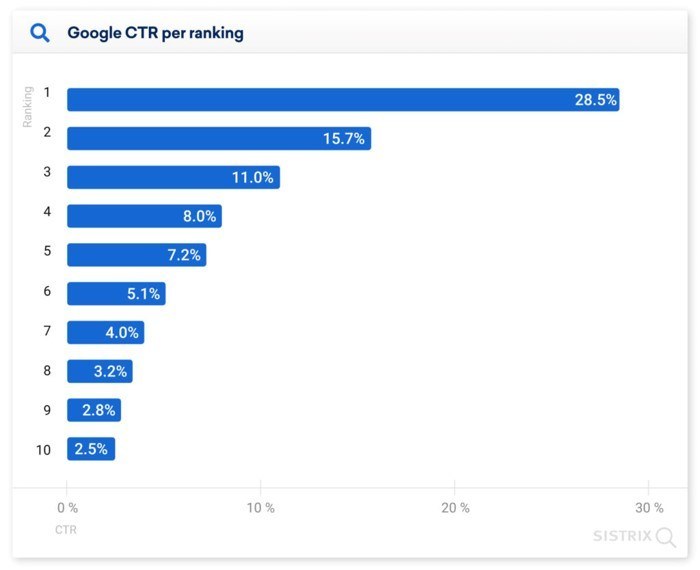
Page one strategy - What does Google want?
For an effective strategy, it’s essential to ask yourself ‘what does Google want?’. This is the first step towards successfully reaching that coveted page one.
“Our company mission is to organize the world’s information and make it universally accessible and useful. That’s why Search makes it easy to discover a broad range of information from a wide variety of sources.”
You may be familiar with the 2021 Core Web Vitals Google page algorithm which effectively is ‘scoring’ three areas of your website that will affect your ranking. These are:
- LCP (Largest Content Paint) - Loading
- FID (First Input Delay) - Interactivity
- CLS (Cumulative Layout Shift) - Visual Stability

What this all means is:
Google wants speed!
The speed which your site content loads is of massive importance to Google. We covered this topic in depth last year, supported by original research, and this article is definitely worth a read.
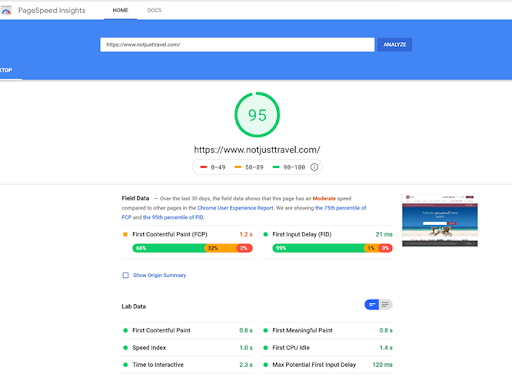
Google wants clarity
Scrutinise your web pages and make sure that they are clear and easy to read. They must contain relevant information, as well as the correct use of title tags, main name (URL), H1 tag and main content.
Here’s a strong example of a clearly constructed page on the Adido website which ranks highly when the search term is ‘travel marketing agency’:
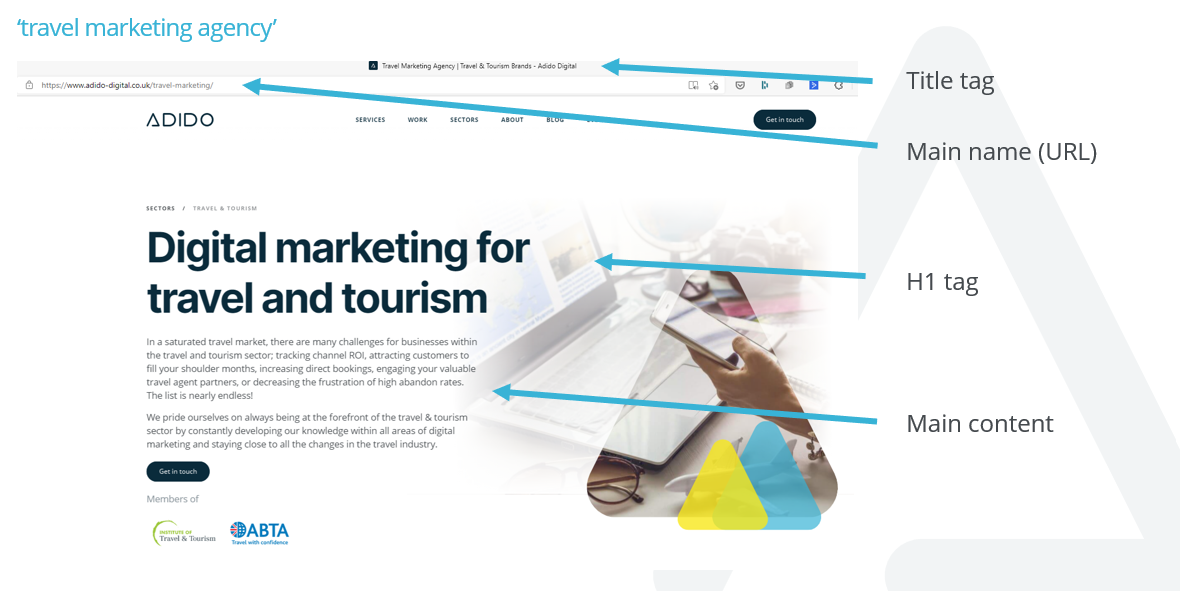
Also, don’t forget to make sure you’re not neglecting your snippet editor, which wants to clearly see the following:
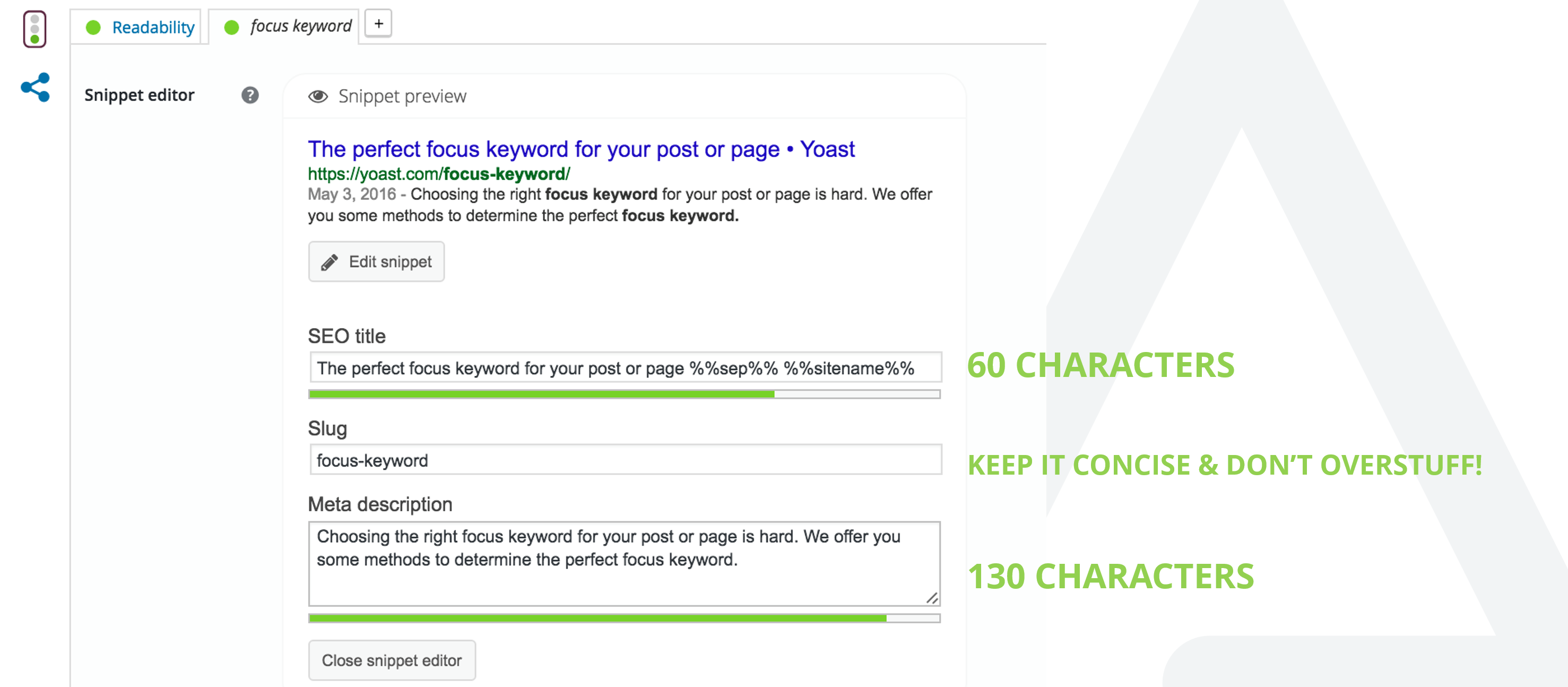
- The more themes you put onto one page or section, the more confused you will potentially make Google, so do your best to separate things out
- Make your website pages as granular as you can – avoid being lazy and ‘dumping’ many themes on one page if you can
- Ensure that your page names, title and content is aligned to what users are searching for
- Make your pages as useful and detailed as you can – you are up against potentially millions of other pages – why is Google going to put yours at the top of the listings?
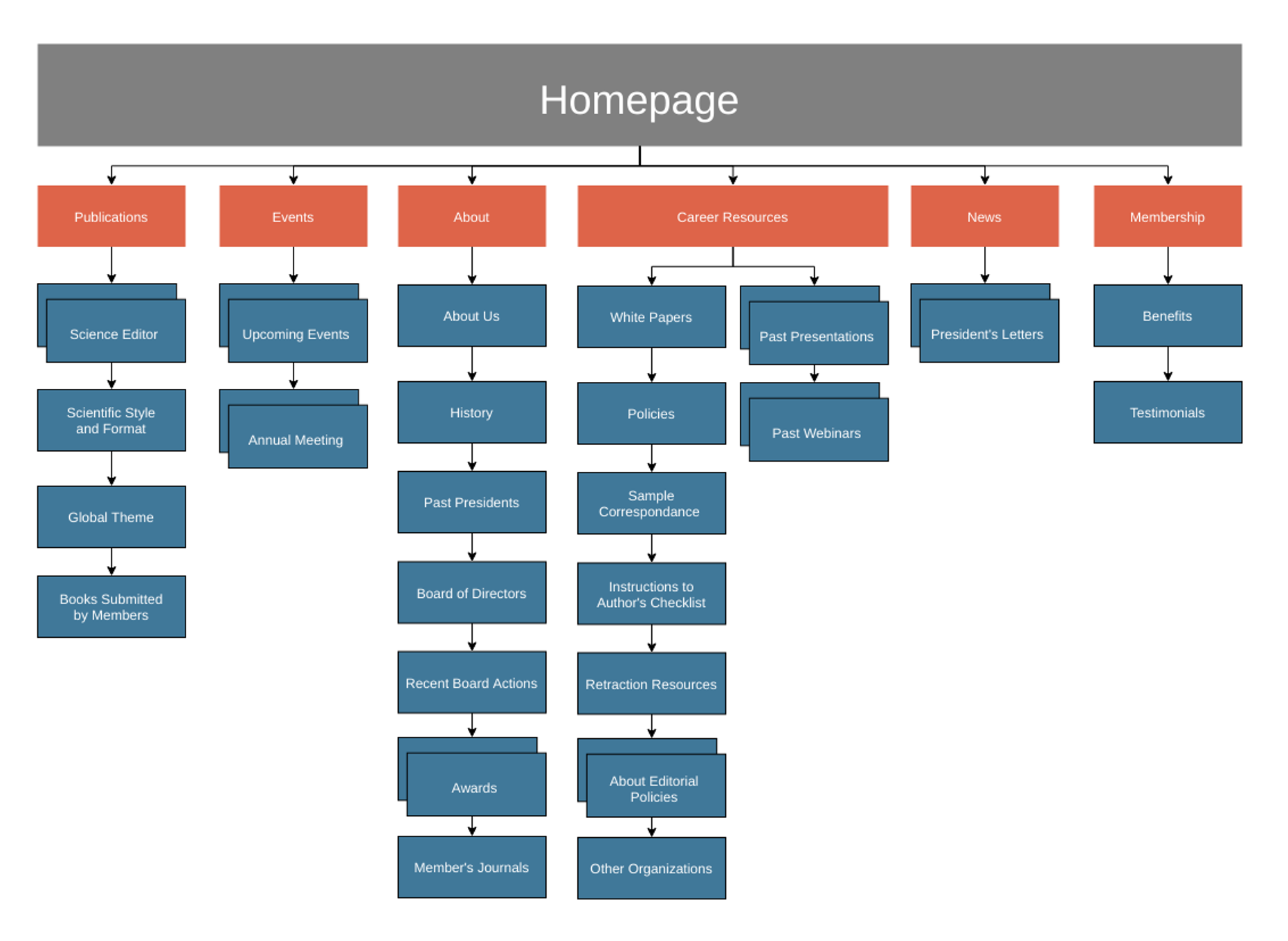
Google wants trust
Google wants to bring order to the web and works in many different ways to achieve this. PageRank is a massive part of this process and they describe PageRank as follows:
“Academic citation literature has been applied to the web, largely by counting citations or backlinks to a given page. This gives some approximation of a page’s importance or quality. PageRank extends this idea by not counting links from all pages equally, and by normalizing by the number of links on a page.”
Also to gain trust, links can be from your own site as well as others!
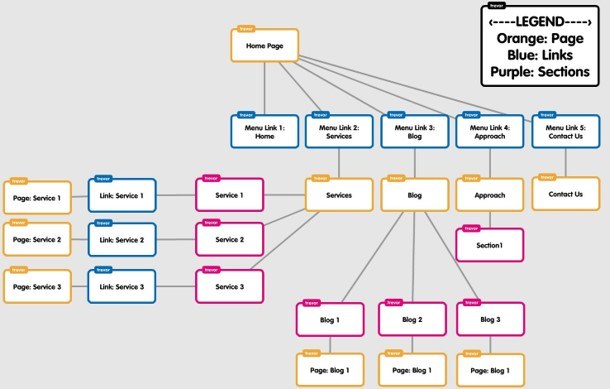
Summarising what Google wants…
- Websites that load fast
- Websites that give the most relevant content to what people are looking for
- Websites that make it easy to find content
- To show the most trusted content to its users
- To show websites that don’t try and dupe users by moving the screen around or are hard to navigate
And what website visitors want…
- Websites that load fast
- Websites that give the most relevant content to what people are looking for
- Websites that make it easy to find content
- To see the most trusted content available
- To see websites that don’t try and dupe users by moving the screen around or are hard to navigate
So, now what?
Reach for the stars! (Well, as high up the SERPs as you can!)
As you’ve already seen, the difference between #10 and #1 is vast on Google. Each position you move up from the bottom of the page, will see something like a 25% increase in traffic, and the prize for more traffic is very lucrative, if you can make inroads into the top spots.
Not every #1 position is worth chasing. Sometimes the competition above you is almost impenetrable - Tripadvisor, Booking.com etc have HUGE power in Google and trying to beat them will be near impossible.
And bear in mind, some top positions will get you no traffic compared to some that might get you lots and lots.
Blogging to boost content
If you want to support pages that already have high rankings, then your blog is the route to make it happen.
Links from your own website can count as much as those externally, so using these two resources you can build up content ‘similar’ to the main page that you want to rank for, and inter link your pages to get the best chances to rank.
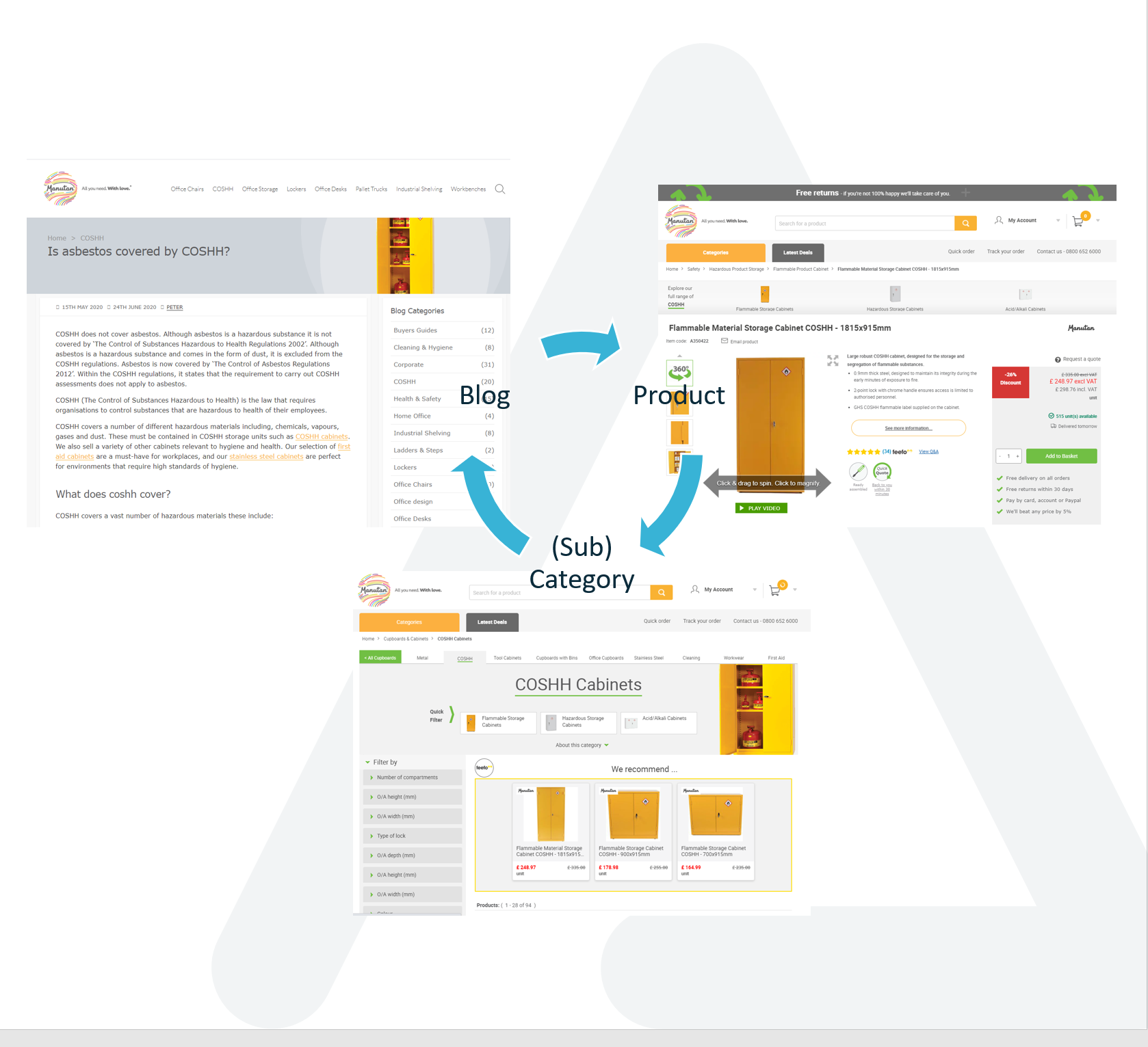
Go deep on competitors by finding out what’s making them rank
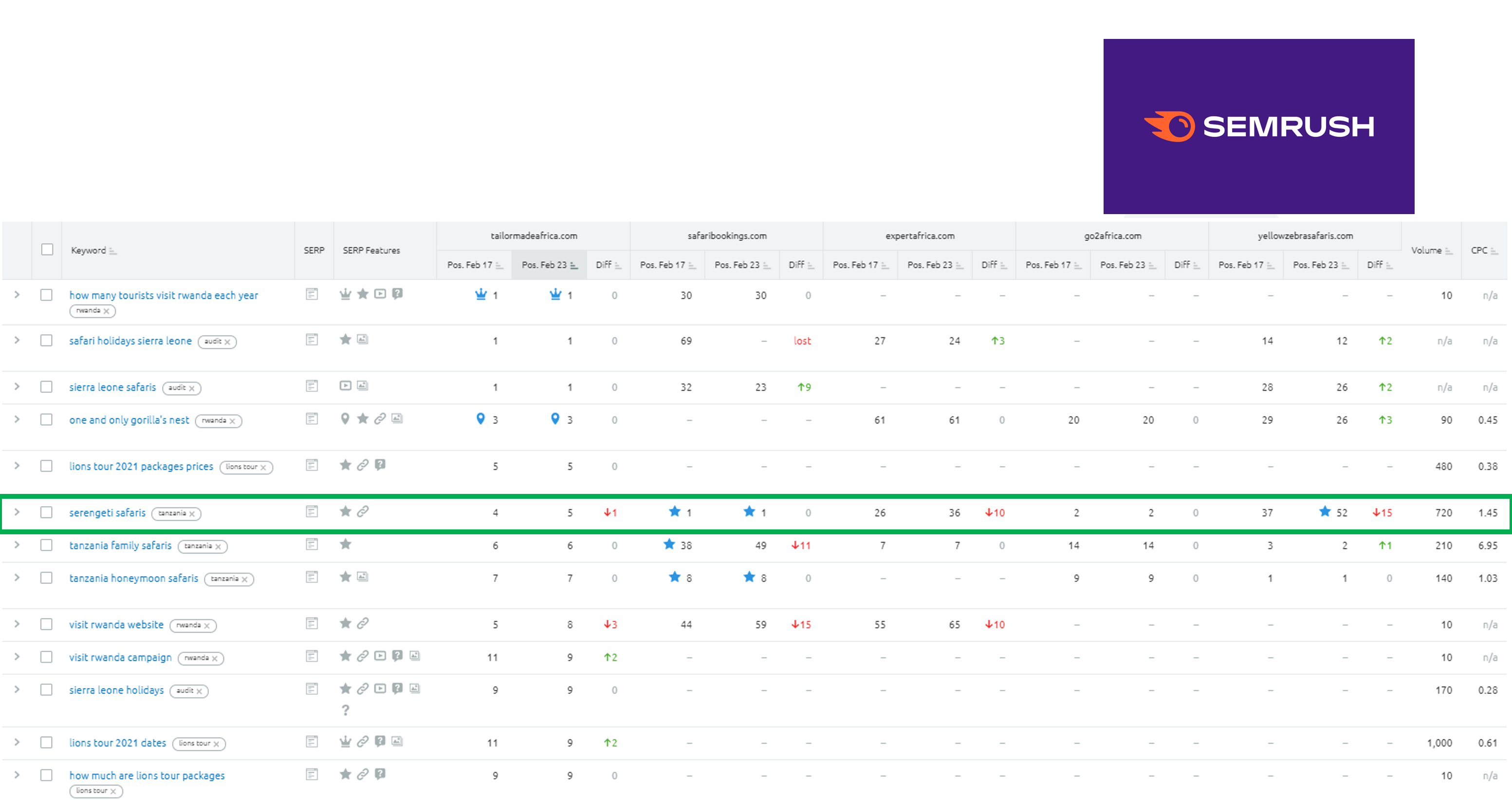
Our tips:
- Look at the top 3 landing pages for the phrase that you really want to rank for
- What content do they have on their page that you can replicate and ideally, what can you do that’s better than them?
- This doesn’t have to just be content that you can write, sometimes including various ‘widgets’ like reviews etc can also have a positive effect
- Think – if you were a potential visitor seeing this page for the first time, what would you want to see?

Andy’s final thoughts - Get to page one then push on!
- Make sure your website is as well set up as possible
- Build out pages for specific targets
- Try and automate as much as you can for niche content and landing pages
- Make every page as ‘great’ as you can – overlay unique content as much as possible
- Make your pages as fast as you can – use tech shortcuts to make images and content load as fast as you can
- Focus on your title and H1 tags for the biggest impact
- Make your landing pages for users as much as search engines – they both want the same thing! Don’t try and be too clever
- Pick your battles – it’s better to be #1 for a phrase with reasonable search volumes than #10 for a higher traffic phrase
- Be creative and think about different ways to get noticed online – ‘best of’ lists, unusual stories, market analysis, unique experiences, associations to ‘hot topics’ etc – there are many ways to get noticed, but if you don’t ever do it, you won’t ever see the results you want!
If you've found this article insightful, next up we'll be sharing more expert advice from the day about planning your marketing campaigns so make sure you look out for our next blog. You'll also find some interesting insights in our articles The role of SEO in Travel Marketing and SEO strategies for travel websites. Alternatively, you can subscribe to our newsletter to receive the latest updates in your inbox (see the form at the bottom of the page).
If you'd like to speak to the team about any aspect of digital travel marketing, get in touch now, we'd be happy to help!




